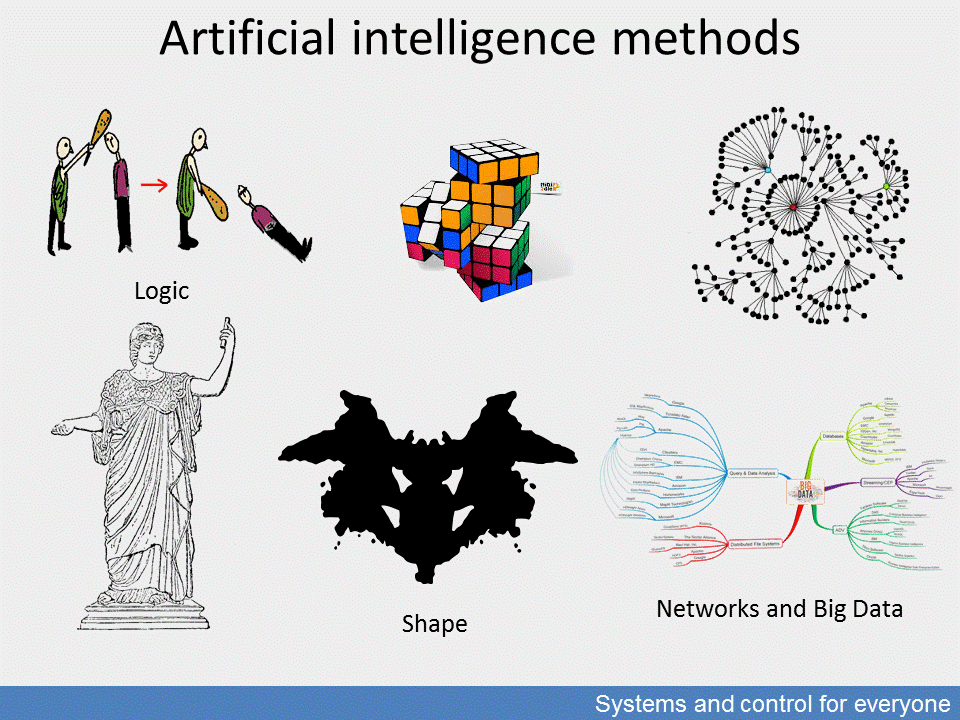

Artificial intelligence methods
In system control, methods referred to as artificial intelligence are mainly applied to non-continuous, intermittently changing systems. One such method is game theory which is characterised by logical deduction and optimisation procedures as well as strong subjective, psychologically observable factors. These are treated with probability estimates in model representations.
In practice, intelligent systems primarily use logical models. Such logics, based on causality, rest on observations, so ultimate causes have little role here. Another basic formula of logical models is the decision node which is also based on similar cause–effect deduction and/or statistical probability estimates.
Big Data processing and relation finding methods opened up further opportunities for intelligent systems.
In addition, shape-connected methods which model the neural relations and network-like phenomena of nature are also gaining ground.
Most of the methods have already been discussed in connection with system characteristics and system control. This shows that the methods and technical peculiarities coexist in systems and in reality. This also justifies the philosophical approach and recommended cautiousness when analysing and using fashionable terms.